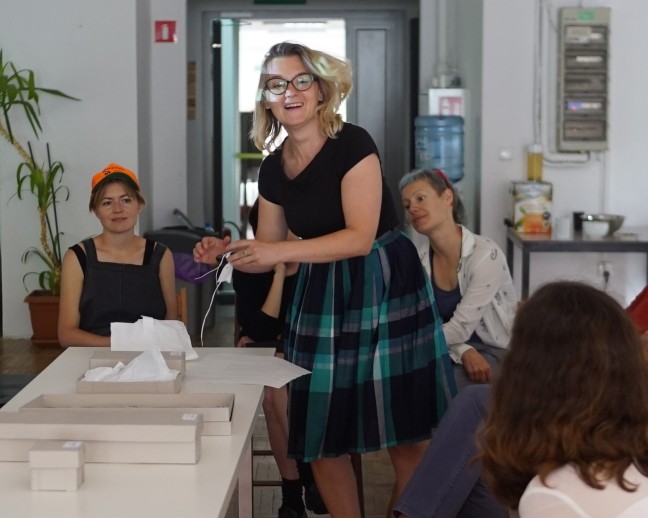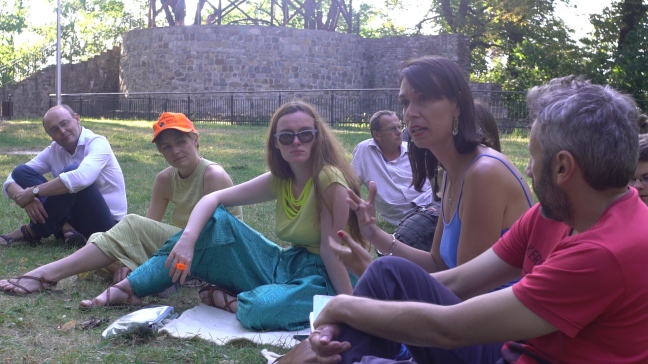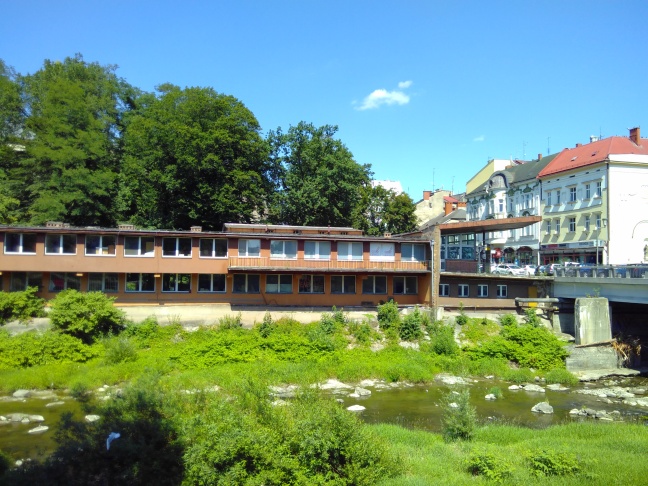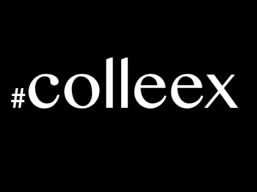A personal account of our 2nd #Colleex Workshop in Cieszyn by Eeva Berglund (originally published on her blog)

I’m inclined to consider that the world is not just complex but that many of the most disturbing aspects of it are deliberately opaque. This applies whether we enter the problem via the existential anxieties of climate politics, the sabotaging of democracy or the machinations of digitally performed cognitive capitalism. Not that everything can or should be rendered transparent. It is the case though, that never-before-seen computing power, ubiquitous surveillance infrastructures and incomprehensibly big data notwithstanding, the world and its workings strike me as increasingly resistant to being known.
All this complicates residual ideas of knowledge translating into power. It confuses or at least contextualises the very idea of intellectual effort. Those things aside, for many of us, working things out together brings many joys and other rewards.
This I rediscovered with force again, with the #Colleex Collaboratory for Experimental Ethnography. #Colleex, an EASA-network, engages with experimental modes of research in and around anthropology. Since 2016 #Colleex has been collectively imagining how to pursue enquiry at the same time as pursuing change. This gives it a somewhat design anthropological hue.
Under the title, The use·ful·less·ness of the experiment, the Second #Colleex Workshop in Cieszyn, Poland, last July energised around forty people to strengthen our capacity to imagine, to think and to feel our way around ethnography today.
The workshop also helped me not just to do but to appreciate and value slowing down. To invoke Isabelle Stengers as well as the call for proposals, the meeting encouraged lingering with questions and provoked us to ask ourselves: why are we doing this work? (Not, I believe, in order to dismiss or critique, but in order to be clearer).

On the border
The July sunshine is now but a memory. It was the publication, last week, of Repair, Brokenness, Breakthrough, edited by Francisco Martinez and Patrick Laviolette, that pushed me to finally write about the event. (I have a text in the book, and won’t review it.) In the poetic introduction to the collection, Fran, who is also involved in #Colleex (seen standing on the right in the photo above), writes: “Brokenness feels like something, but one does not know what it looks like, and even less how to verbalise that something” (2019: 28 ebook). Other authors in the book revel in the trickiness of capturing important things in words, or even trying to do anything as definite as “capturing”.
As with #Colleex, the book’s focus seems to be on how to keep things open. Indeed, how can one cope with a world where so much is deliberately made to go unnoticed and to be beyond democratic control?
The Cieszyn workshop had this ethos too. An implicit impulse ran through the workshop, an activist or perhaps Actor Network-style principle, of prizing open the old and the new black boxes all around us, that are quietly anchoring and materialising binary logics – us versus them as much as one versus zero – into the everyday.
This ethos of opening was, for me, powerfully instantiated in the location. Cieszyn is a delightful town on the Polish-Czech border. On the other side of the Olza River is now Czech Cieszyn. There we found more good beers and yet another currency. All we had to do was simply walk over a bridge, past former border checkpoints.

For one born in the 1960s, and who frequently crossed the Iron Curtain as a child, this evoked memories and feelings that are particularly poignant in this 30th-anniversary week of the literal dismantling of the Berlin Wall.
Our local hosts at the “Political Critique Dayroom in Cieszyn” have been doing projects with local youth since 2009. They have been drawing attention to the social and economic (I might say “designed”) barriers affecting life chances alongside more material ones, like walls or rivers. In a place like this keeping things open, resisting binaries, is subtle but consequential work.
Some examples
Openness was cleverly materialised by Natalia Romik and her nomadic architecture. Walking around small Polish communities, she has literally introduced residents to the histories of previous, Jewish, inhabitants of those places. Together with her extensive research into Jewish heritage in architecture and urban life, her portable archive encloses and discloses at the same time.

I was delighted by a phrase Natalia use in passing: “compulsive urban management”. It stayed with me as I reflected on Guy Julier’s re-presentation of six, variously “useful” 60-minute performances in Kalasatama, Helsinki. But it’s above all the use·ful·less·ness of this supposedly sustainability-oriented, “smart city” urban experiment that is worth pondering. That Guy, better known for his critical take on things, expressed his surprise in finding a new empathy with Kalasatama through these performances, suggests another way the workshop encouraged openness.
It’s cliché perhaps that artistic work and material objects lend themselves to resisting closure. Not surprisingly then, a good portion of the programme involved either performing or reflecting on material things. Similarly, film and image featured strongly, perhaps most movingly (and amusingly) for me in Zoe Aiano’s work with the Wild Pear collective. Thanks also to Zoe for some of the photos here!
The workshop practiced the ethos of openness also in the so-called open format. We had already practiced this in Lisbon two years previously in efforts to shift away from academic conventions of meeting and learning from each other. Tomás Sanchez Criado with our Polish organisers, Eva Rossal (pictured below) and Tomasz Rakowski, guided us through a programme that sometimes required patience and trust in the situations, devices, performances, experimental installations and other mini-experiments on offer. That patience was, at least for me, amply rewarded.

There were also formats that somehow put me in mind of the cyborg. In what I think of as a Harawayesque way, all formats drew us to connect with whatever parts, from whatever angles we could, using whatever hinges we could, resulting in temporary yet potentially fruitful [sic] monsters.
Some formats involved text and words materialised in different ways (Elisa Taber, Ofri Lapid), not simply to play around, but to examine the powers of the written word. We also practiced becoming tricksters, manipulating plastic, paper, coins, polystyrene and smartphone screens, to lure other animals and anticipate the unknowable with Hermione Spriggs. As creatures with many senses, we also trained our ears with Piotr Cichocki’s DJ set and our taste buds with Christy Spackman’s hyper-designed chocolate.

Luckily for me, there was also scope for presenting more conventionally (with PowerPoint as support), so I was able to simply to relate some of my experiences of doing activist walking research.
Reflecting
Before the workshop, Tomás and I talked about the importance of confusion in fieldwork situations, something we both have experienced but also written about. It has a role in research and teaching, but it can be hard to persist in academia with the things that we feel and perhaps even see but can’t put into words. Contemporary academic conditions of work only aggravate this situation.
Gathering together as #Colleex, inviting social scientists as well as designers, artists and architects to share in papers and open formats, we put our creativity to work on the spot and in variously fleeting ways. As Tomás and Adolfo Estalella have also discussed in print, anthropology needs to open up to more interventive methods of engaging – discovering but also designing the world.

It is and was tempting to endorse everything we did as creative, and to be optimistic about what the open format could do and how it might become valued. But I think what I took away from the event was something different. It was a sense – a feeling – of researchers with others struggling to make sense, and succeeding in doing so with a fresh (to me at least) courage to actually be intellectual. Maybe this is in addition to being playful or creative, but do I want to emphasise the critical intellect.
To make an academic reference is surely thus warranted. Isabelle Stengers writes about experimenting:
“What is at stake here is ‘giving to the situation the power to make us think’, knowing that this power is always a virtual one, that it has to be actualised. The relevant tools, tools for thinking, are then the ones that address and actualise this power of the situation, that make it a matter of particular concern, in other words, make us think and not recognise” (p.185)
– Stengers, I. (2005). Introductory notes on an ecology of practices. Cultural Studies Review, 11(1), 183–196.
Maybe open formats have many functions. Following Stengers they can be tools for thinking. The most provocative ones for me, were those that were open not just to fresh thought, but to the world, which the best of them managed to offer to us in that small situation at the border.
I started this post with a complaint that the world seems ever harder to know. I’ll conclude by noting that though it may be confusing to develop ethnographic experimentation as a tool to redress this problem, it can be powerful.

